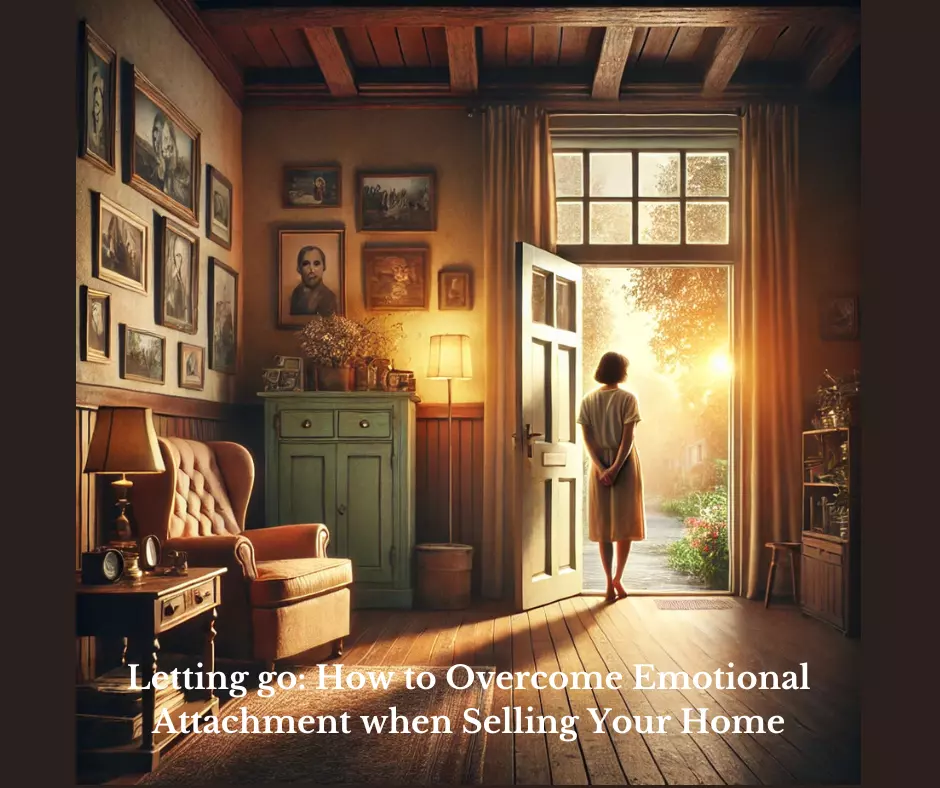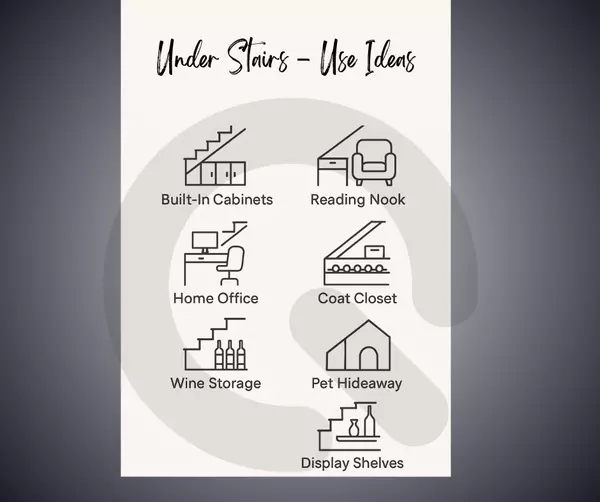Letting Go: How to Overcome Emotional Attachment when Selling Your Home

Letting Go: How to Overcome Emotional Attachment when Selling Your Home
Selling a home is more than just a transaction - it's often an emotional experience. For many homeowners, the process of selling a property can be fraught with sentimental challenges that make it difficult to move on. If you're finding it hard to let go of your home due to emotional attachment, you're not alone. In this blog post, we'll explore common emotional challenges and provide practical strategies to help you manage these feelings while ensuring a successful sale.
Understanding the Emotional Attachment
Before looking into solutions, it's important to acknowledge why emotional attachment to your home can be so intense. For many, a home represents a repository of personal history and cherished memories. Whether it's the place where you celebrated major life events or simply where you've built a sense of security and belonging, these emotional ties can make the thought of selling feel overwhelming.
Common Emotional Hurdles
Nostalgia and Memories
It's natural to feel a pang of nostalgia when you think about leaving behind the place where so many life events have unfolded. The walls of your home may hold a multitude of memories, from birthdays to quiet evenings spent with loved ones
Identity and Success
Your Home might be intertwined with your sense of identity and personal achievement. Selling it can feel like relinquishing a part of yourself or a symbol of your hard-earned success.
Fear of Change
The idea of moving to a new place can bring about anxiety and fear of the unknown. The comfort and familiarity of your current home can make any change seem daunting.
Guilt and Self-Doubt
If financial pressures or other circumstances are prompting the sale, you might feel guilty or as though you're failing in some way. These feelings can add to the emotional burden of the process.
Concern for Future Owners
It's common to worry about who will live in your home next and how they will treat it. You may feel protective over the space that's been so special to you.
Strategies for Managing Emotional Attachment
Achnowledge Your Feelings
It's important to recognize and validate your emotions. Understanding that it's normal to feel a range of emotions during this time can help you manage them more effectively.
Focus on the Future
Shift your focus to the positive aspects of the move. Whether it's a new chapter in your life, an upgrade, or a change of scenery, remind yourself of the benefits that come with selling and relocating.
Create a Memory Book
Preserve the memories of your home by creating a photo album or memory book. Documenting the special moments you've experienced in the house can help you cherish those memories without needing to hold onto the physical space.
Declutter with Intention
Use the process of decluttering as an opportunity to make thoughtful decisions about what to keep and what to let go. This can help ease the emotional transition by creating a sense of closure.
Seek Support
Don't hesitate to lean on friends, family, or a therapist to discuss your feelings. Sometimes talking about your emotions can provide relief and a fresh perspective.
Work with a Compassionate Realtor
Choose a realtor who understands the emotional complexities of selling a home. A compassionate professional can guide you through the process with sensitivity and care, helping to ease your stress and make the sale smoother.
Making the Sale Smoother
Selling a home with deep emotional ties requires a delicate balance between honoring your feelings and moving forward. By acknowledging your emotional challenges and implementing these strategies, you can navigate the selling process with greater ease and confidence.
Frequently Asked Questions (FAQ)
Why is it so difficult to sell a home when I have emotional attachments?
Emotional attachments to a home can make selling difficult because the property often holds significant personal memories and represents a key part of your identity. Letting go of a place where you've experienced many life events can feel like losing a piece of yourself.
How can I manage the nostalgia and memories associated with my home?
Consider creating a memory book or photo album to document the special moments you've experienced in your home. This allows you to preserve your memories while focusing on the positive aspects of your new chapter.
What should I do if I'm feeling guilty about selling my home?
It's important to recognize that feeling guilty is a natural part of the process, especially if the sale is driven by financial or personal challenges. Talking to a supportive friend, family member, or therapist can help you work through these feelings and gain perspective.
How can I make the process of decluttering easier emotionally?
Approach decluttering with intention and mindfulness. Use it as an opportunity to reflect on what items are truly important and what can be let go. This process can help you feel more in control and less overwhelmed by the change.
What are some ways to prepare emotionally for moving to a new home?
Focus on the benefits and new opportunities that come with relocating. Create a vision for your new home and life, and remind yourself of the positive aspects of the move. Engaging in self-care and staying connected with supportive people can also help ease the transition.
How can I find a realtor who understands my emotional needs?
Look for a realtor who has experience dealing with the emotional espects of selling a home. During initial consultations, discuss your concerns and guage their empathy and understanding. A compassionate realtor will provide support and guide you through the process with sensitivity.
What are the first steps I should take if I'm struggling to let go of my home?
Start by acknowledging your feelings and talking about them with someone you trust. Begin the decluttering process slowly, and consider working with a real estate professional who can help make the transition smoother.
Can a memory book or photo album really help with the emotional aspect of selling?
Yes. Creating a memory book or photo album can be a therapeutic way to honor and remember the time spent in your home. It provides a tangible way to keep your memories alive while making it easier to move forward.
How can I make sure I'm making the right decision about selling my home?
Take time to evaluate your reasons for selling and weigh the pros and cons. Consulting with a realtor and seeking advice from trusted friends or family members can also help you make an informed decision.
What if I'm still struggling even after my home is sold?
It's normal to continue feeling emotional even after the sale is complete. Allow yourself time to adjust and seek additional support if needed. Talking to a counselor or therapist can help you process your emotions and find closure
If you have more questions or need personalized advice, don't hesitate to reach out.
Categories
Recent Posts











